Afe Babalola University (ABUAD) has established the Law and Community Legal Clinic as part of a strategic effort to revolutionize tertiary education in Nigeria. This initiative was deemed necessary to restore Nigeria’s once-excellent reputation in the educational sector. The vision for this endeavor is firmly rooted in the principles of the university’s founder, Aare Afe Babalola, SAN, D. Litt, CFR.
In line with this vision, the University has developed numerous programs and courses designed not only to highlight its unique approach but also to prepare students for contemporary socio-economic challenges. The ABUAD Law and Community Legal Clinic was crafted by one of the foremost educators at the University, currently serving as both the Vice Chancellor and the pioneer Director of the Clinic, Prof. Smaranda Olarinde. The clinic emphasizes the vocational aspect of legal education, ensuring that students are equipped to meet the complex and dynamic demands of the legal profession. By participating in a service-learning program, students enhance their skills and gain experience that adds critical value to the legal industry.
In 2024, the Law and Community Legal Clinic continues to be an integral component of a mandatory course titled “Introduction to Legal Practice,” taken by 400-level students in the College of Law during their first and second semesters. This course allows students to apply their theoretical knowledge to practical situations, covering alternative dispute resolution (ADR) skills such as negotiation, mediation, arbitration, and conciliation, along with hybrid methods like med-arb. To further deepen their understanding, students are encouraged to take certified courses offered by the Nigerian Institute of Chartered Arbitrators. Under the supervision of staff clinicians, student clinicians work on resolving disputes brought to the Law Clinic.
The human rights knowledge students gain in class inspires them to reach out to secondary school students, raising awareness about their rights and obligations as citizens of Nigeria. Additionally, student-clinicians conduct advocacy visits to communities to educate women about their rights and interview detainees in Nigerian correctional facilities in Ado-Ekiti.
The Law Clinic is strategically located on the ground floor of the College of Law, ensuring easy access for clients while maintaining privacy. It features a large reception area where prospective clients are welcomed and made comfortable as their bio-data and requests are documented. The clinic also includes four private interviewing rooms to ensure confidentiality and create a conducive environment for interaction between clients and clinicians.
The clinic is staffed by a director, an administrator, staff clinicians, and student clinicians. The administrator, who is also a lecturer in the College of Law, oversees and coordinates the clinic’s activities. The staff clinicians are law lecturers at ABUAD trained in clinical practice and ADR methods. The student-clinicians are 400-level students in the College of Law.
2.0 Mission and Objectives
The mission of the clinic is to cultivate twenty-first-century lawyers who can effectively compete with their peers in the global legal industry through service-learning and clinical legal education. To achieve this mission, the following objectives have been established:
- Build the capacity of student-clinicians to become strong, responsible community leaders capable of independently and collaboratively designing and implementing legal solutions to social problems, particularly for low-income households.
- Provide free legal services to indigent individuals and low-income families in the immediate community through supervised participation, allowing them to complete their university education.
- Instill values of integrity, pro bono service, and discipline in law students at Afe Babalola University.
- Equip students with ADR skills to offer solutions to cases without resorting to litigation.
- Promote peaceful coexistence and help alleviate the congestion in courts.
- Encourage peace and progress within the community through strategic collaborations with relevant stakeholders.
2.1 Activities
To fulfill the objectives of the ABUAD Law and Community Legal Clinic, several activities were planned and executed during the review period, including:
- Providing legal services to students from low-income households to assist them in completing their university programs.
- Strategic advocacy for low-income students and indigent individuals.
Hosting a symposium on women’s rights addressing gender-based violence and sexual harassment. - Awareness campaign on human rights within and outside the university.
- Client interviews and counseling.
- Symposium with the Nigeria Police and the Ekiti State Ministry of Justice.
- Legal aid and sensitization at Odo-Ado Police Station.
- Interviews with prison inmates; legal aid and humanitarian assistance at Ado-Ekiti Prisons.
- Sensitization of children about their rights in secondary schools.
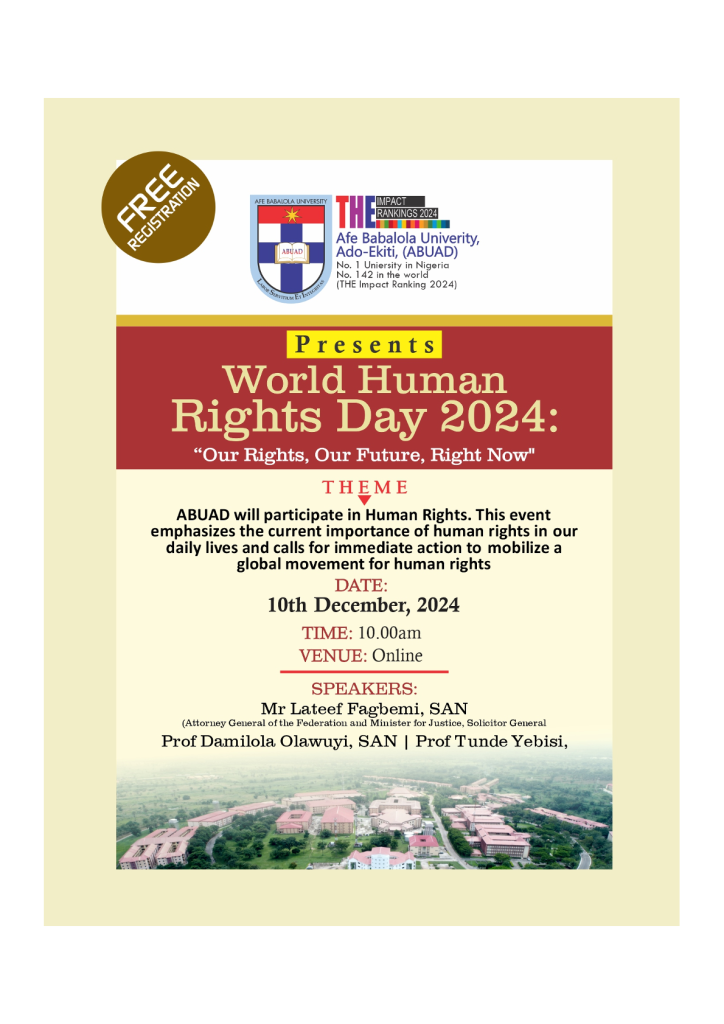
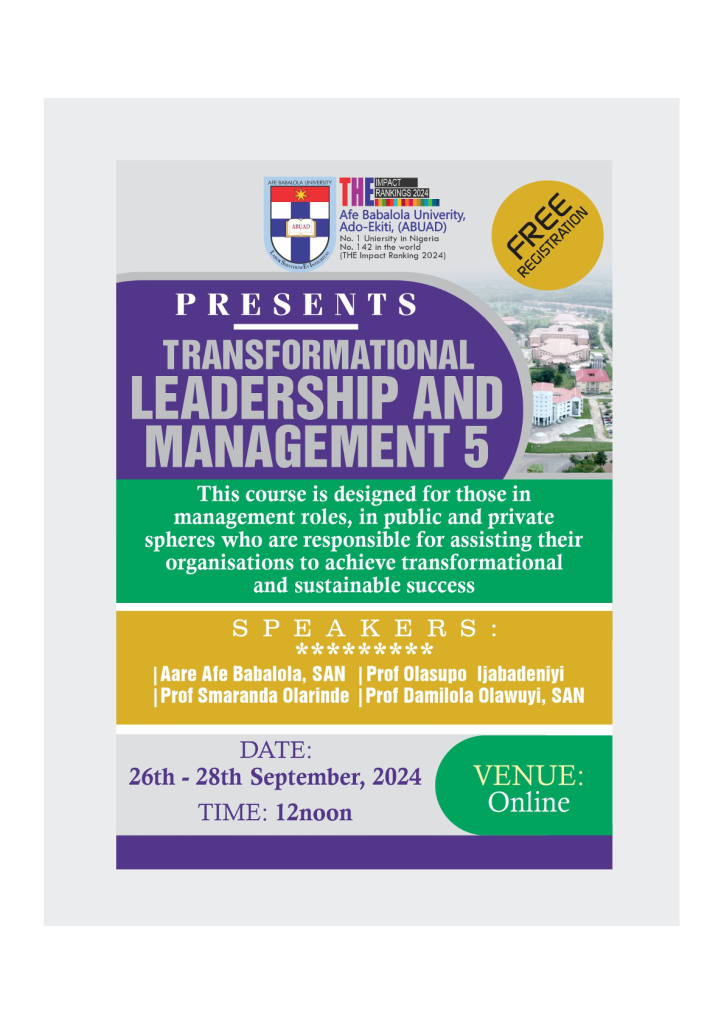
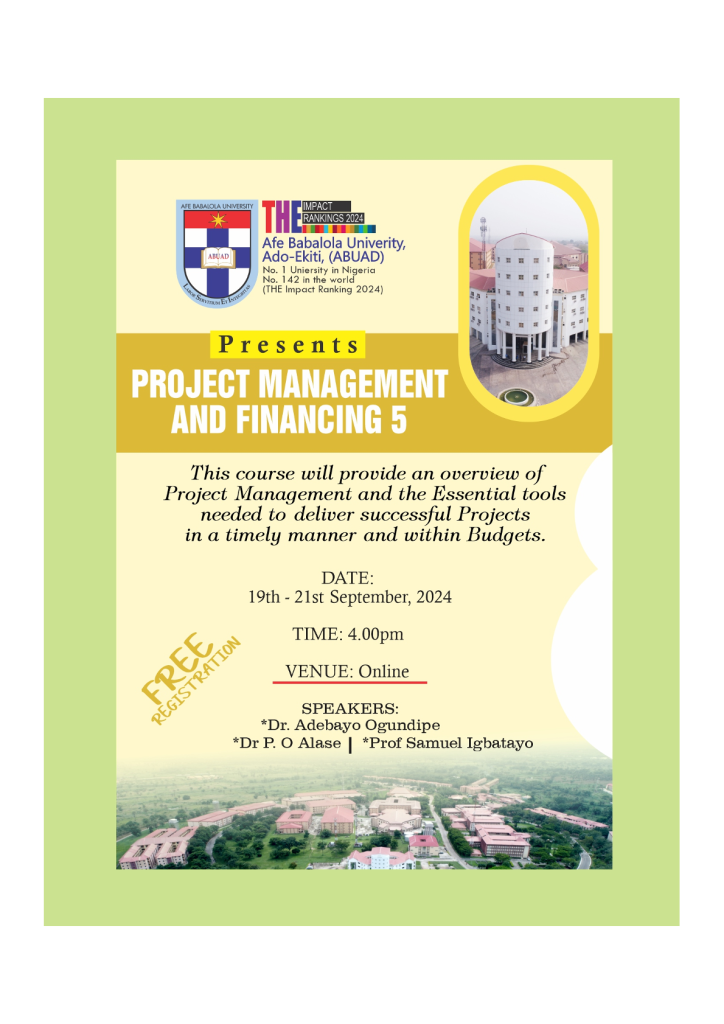

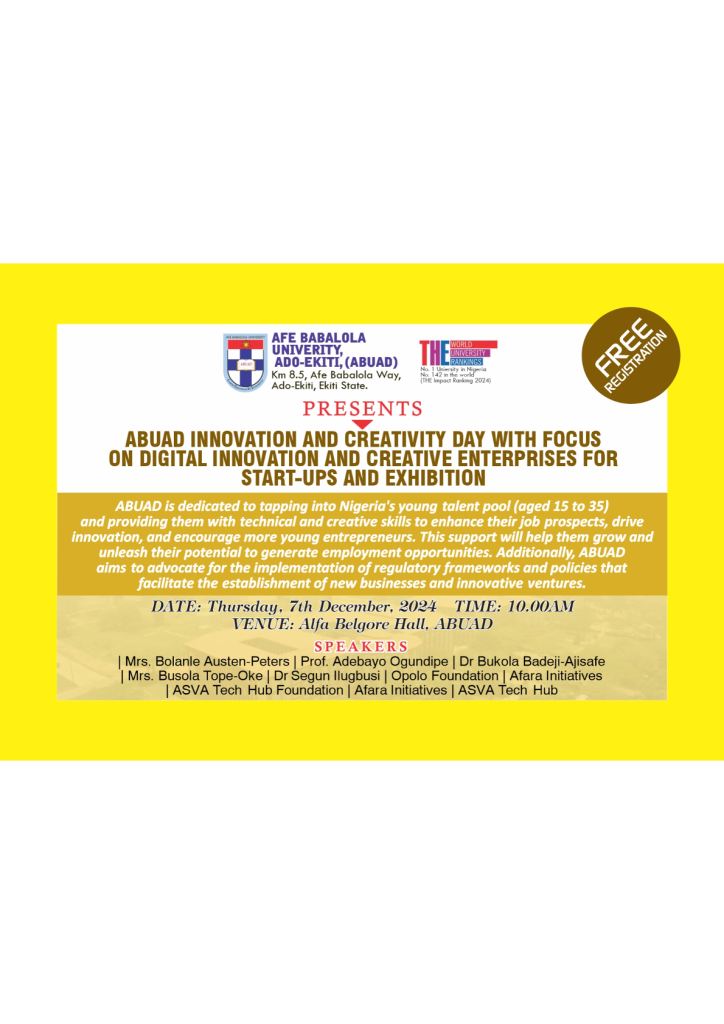

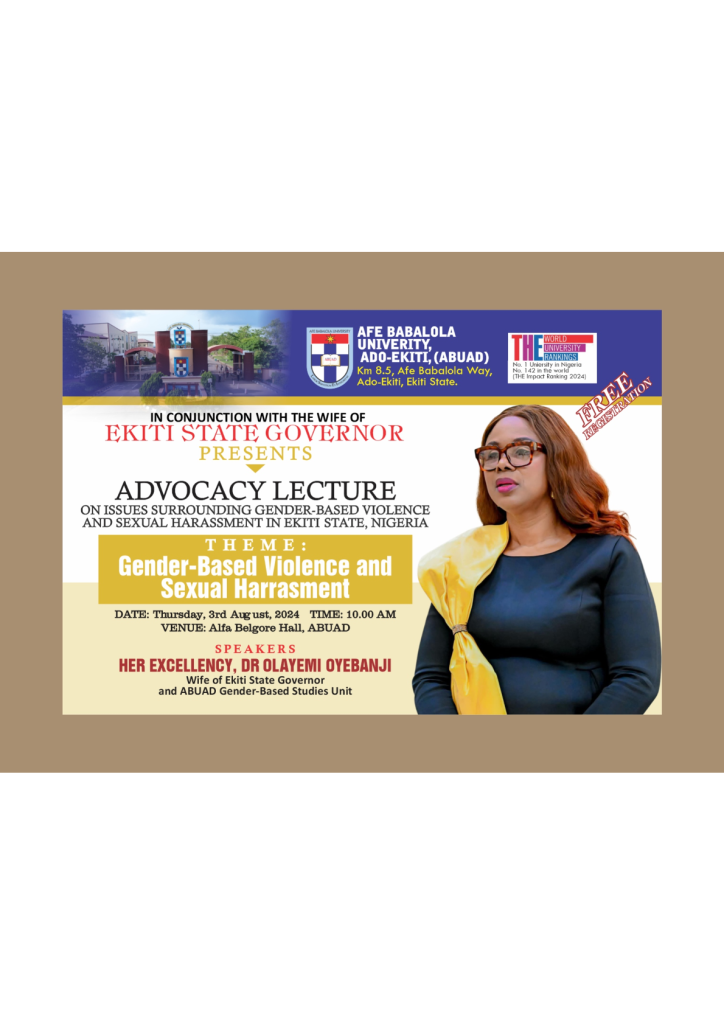
On December 10, 2024, the ABUAD Law and Community Legal Clinicians visited Ekiti
State House of Assembly as students’ parliamentarians to engage the leadership of the Ekiti State House of Assembly on the need to enact a bill that will ensure better human rights for the people from low-income households and people living with disability. It is also a time to celebrate Human Rights 75, commemorating the 75th anniversary of the Declaration of Human Rights Day. This event aims to promote equality, fundamental freedoms, and justice and to raise awareness about human rights among young people, especially those from low-income households.
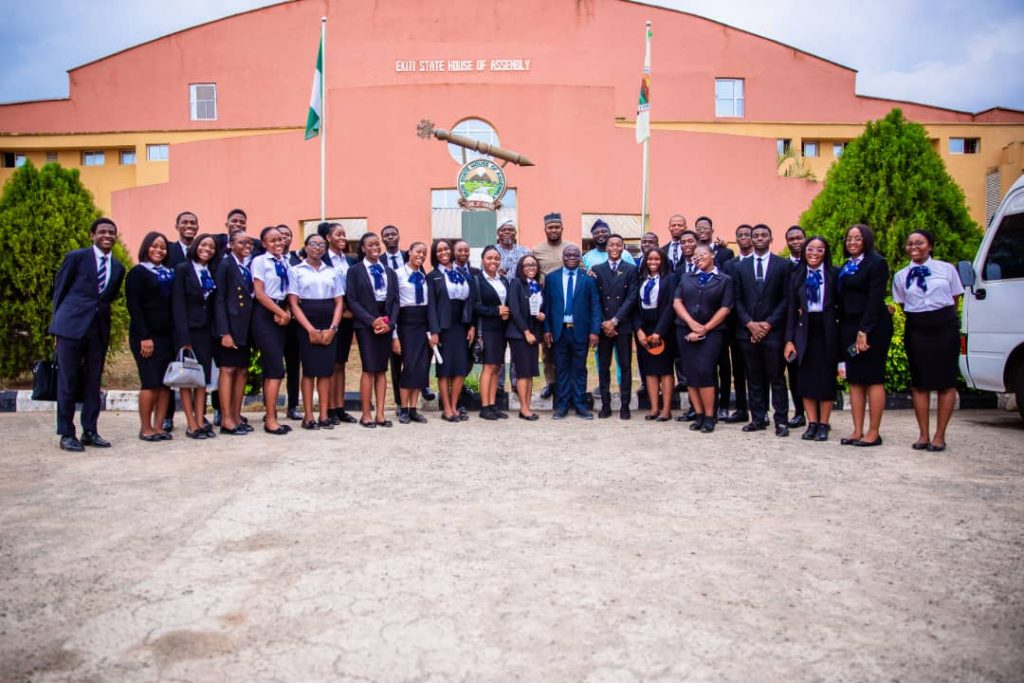
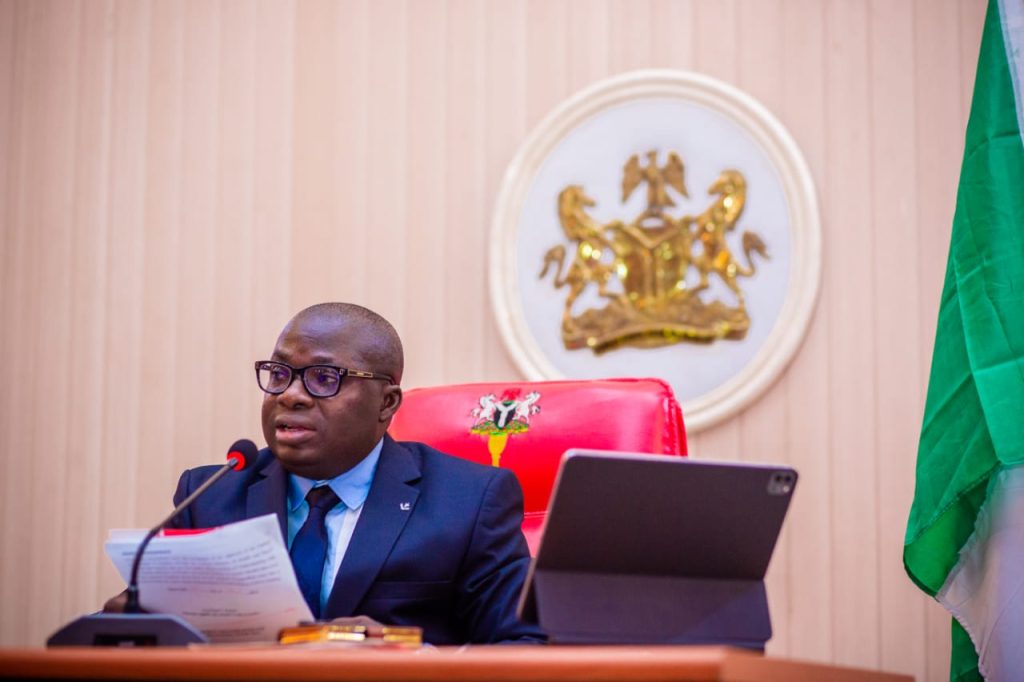
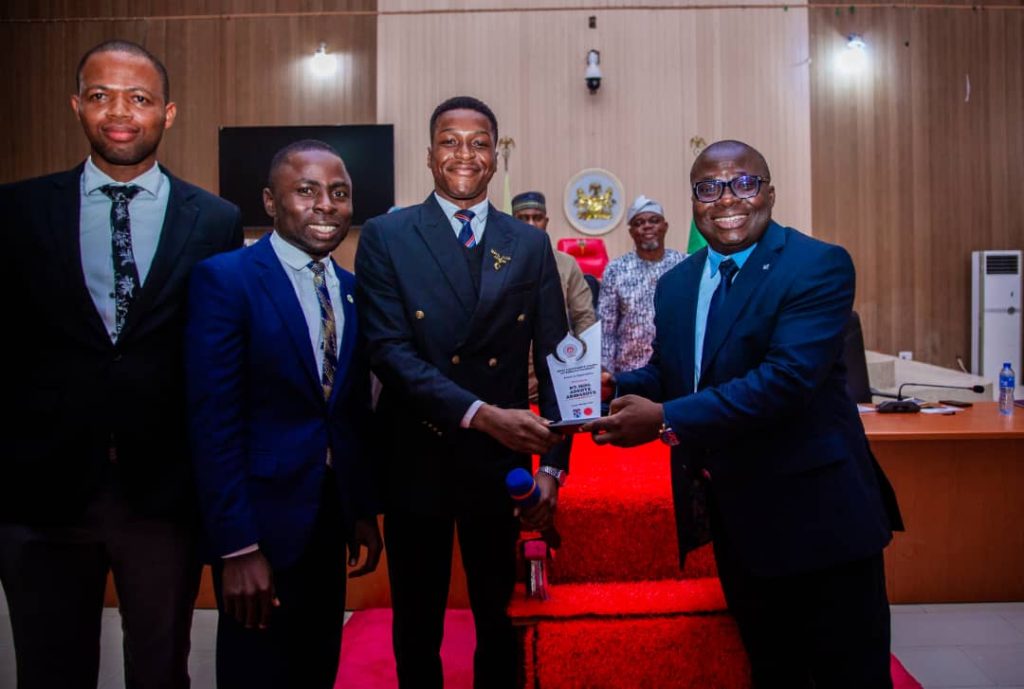
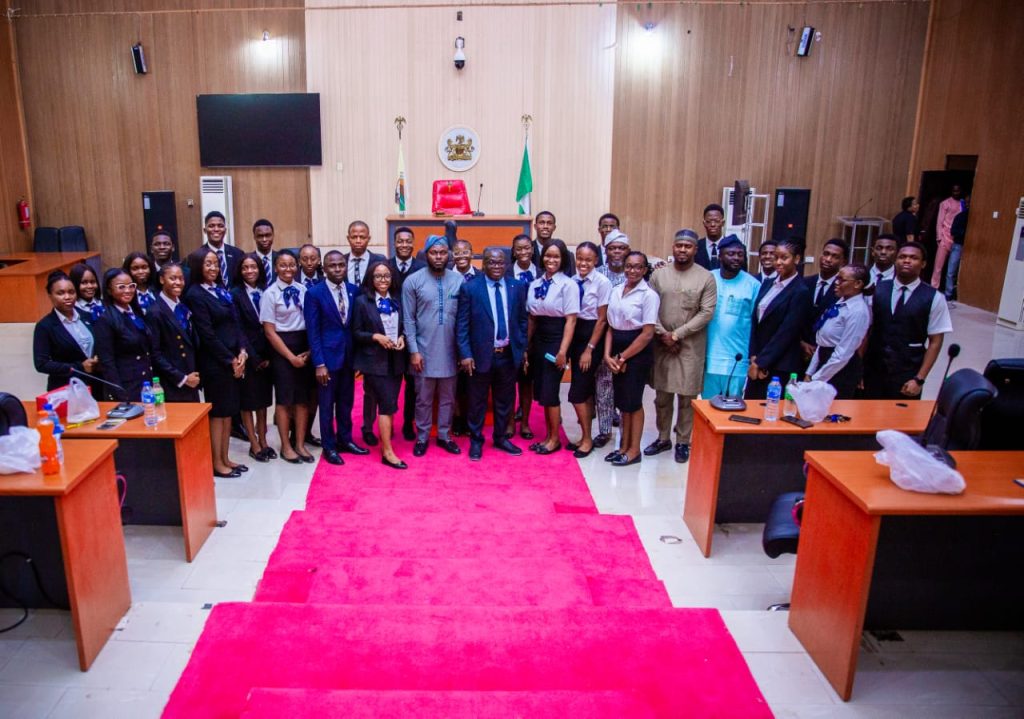
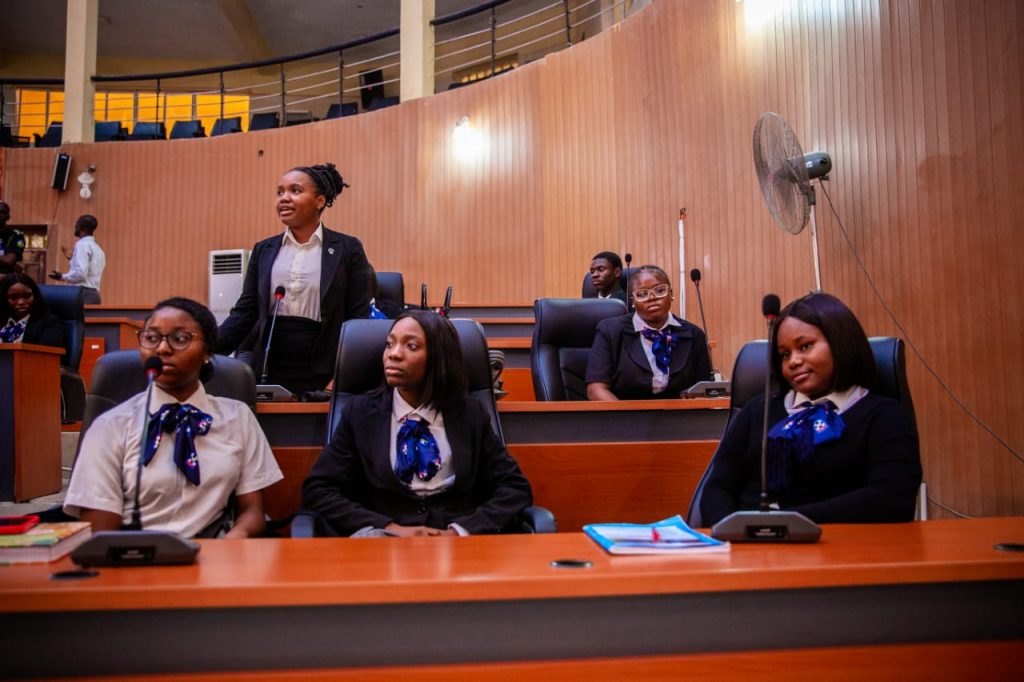
This is the chronological report of Afe Babalola University Law and Community Legal Clinic from 2015-2024
2023-ABUAD-LAW-AND-COMMUNITY-LEGAL-CLINIC-REPORTABUAD-LAW-CLINIC-REPORT-2015-2021
International Collaboration Data Gathering for SDG

Global Network of Human Rights and Environment
In 2022, ABUAD has continued to be a member of the Global Network of Human Rights and Environment, “a global network of thinkers, researchers, policy-makers, opinion-formers, and community activists whose diversity forges new conversations and relationships.”

IUCN Academy of Environmental Law
In 2024, ABUAD has continued to be a member of the IUCN Academy of Environmental Law, a global network of universities that work together “in building environmental law education capacity and promoting the conceptual development of environmental law.”
The network aims to advance environmental law education as a tool for sustainable development.
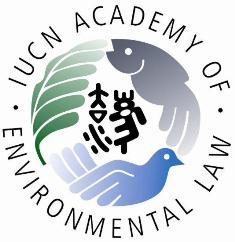
ABUAD continues strong record of international collaboration for SDGs through its membership of the United Nations Academic Impact
Since joining the UNAI in 2018 and up until 2024, ABUAD has continued to advance international cooperation with universities across the world to develop joint programs in key areas relating to the SDGs.

SDSN Network in Nigeria
Since joining the United Nations Sustainable Development Solutions Network in Nigeria in 2016 and up till 2024, ABUAD’s Institute for Oil, Gas, Energy, Environment, and Sustainable Development (OGEES Institute) has continued to play leading roles in mobilizing cross-sectoral dialogue across Nigeria to promote practical SDG solutions. In the same vein, ABUAD as a university body has also been accepted into the Sustainable Development Solutions Network. Below are the links:

Association for the Advancement of Sustainability in Higher Education
ABUAD has been accepted into the Association for the Advancement of Sustainability in Higher Education (AASHE) and its program of Sustainability Tracking, Assessment & Rating System (STARS). The link is as follows:
ABUAD Acceptance into the Association for the Advancement of Sustainability (AASHE)


ABUAD is the only university in Nigeria that is endowed with two (2) United Nations Educational, Scientific, and Cultural Organization (UNESCO) Chairs. They are as follows: The UNESCO Chair on Peace and Citizenship and The UNESCO Chair in Entrepreneurship Education for Sustainable Development.
This is the chronological report of Afe Babalola University Law Clinic from 2015 to 2024.
ABUAD-LAW-CLINIC-REPORT


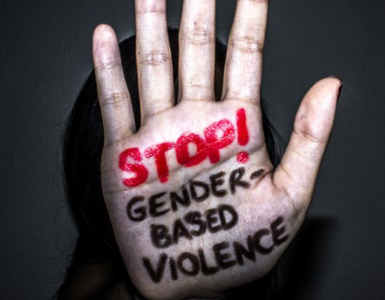
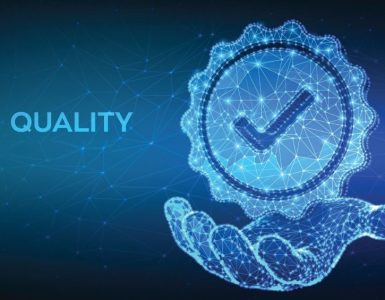

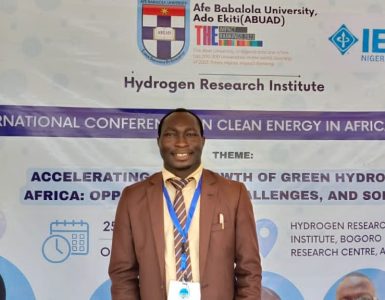











Add comment